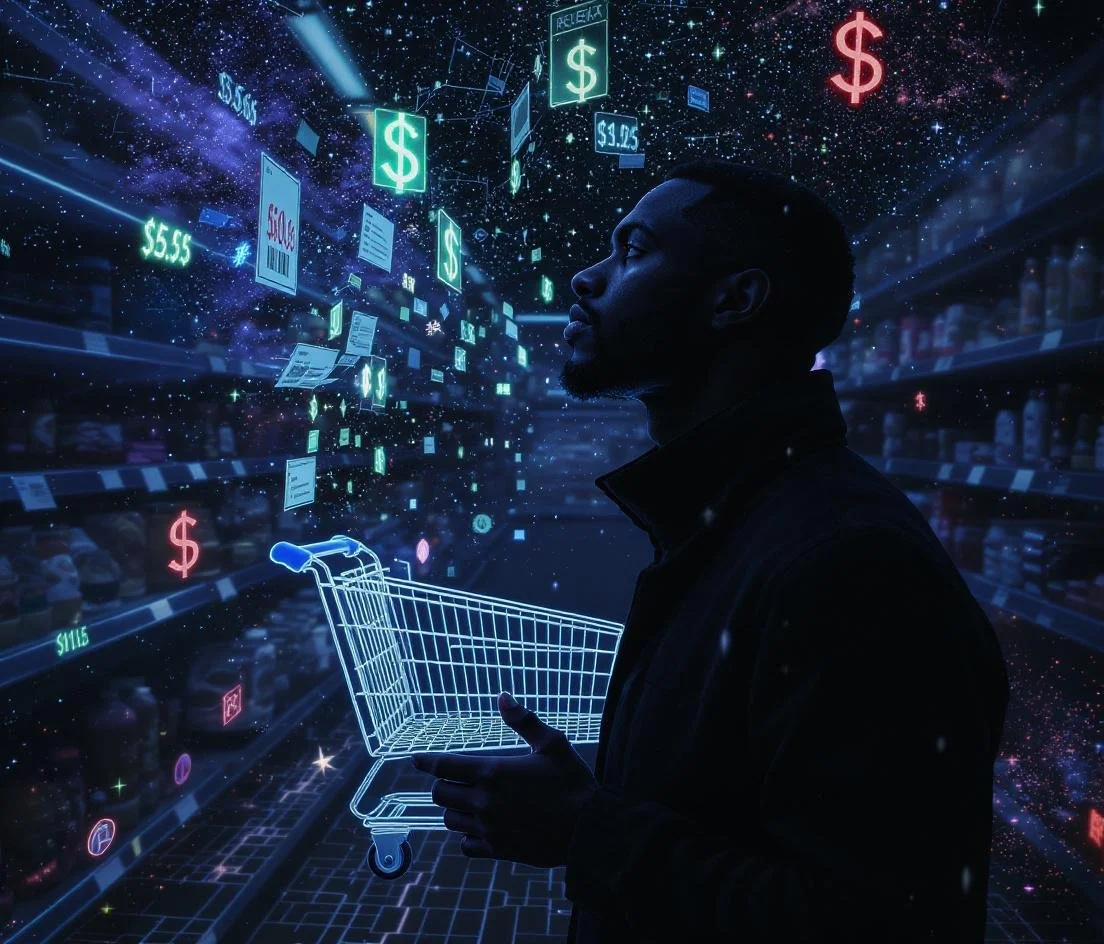
Thought Leadership
AI, Identity & Strategy
I write from lived experience in strategy, identity, and AI. Generative AI helps refine clarity and validate data , but the voice and perspective are entirely my own.

When “AI Employees” Call Humans The Constraint: Why Podium’s Jerry 2.0 Feels So Gross
There is a special kind of nausea that hits when a founder calls people “the biggest constraint” and their new AI “the employee.” Podium’s Jerry 2.0 is sold as 24/7 help for local businesses, but the real pitch is simple: more revenue with fewer humans. This piece pulls apart why that story feels so slick, so scummy and what it reveals about how tech leaders really see the rest of us.

The Human Harm Layer: When Organizational AI Turns Outward to The Shopper
Retail AI does not begin at the edge of the app. It begins inside the organization, in the way leaders treat employees who raise concerns about harm.
The Human Harm Layer is the mechanism that carries those internal habits into external decisions about customers. When a worker is told to “go into listen mode” after naming how a pricing model will make life more expensive for poor Black neighborhoods, that is not just a bad meeting. It is Emotional Metadata the system chooses to ignore.
The same logic shows up later in delivery platforms and dynamic pricing schemes that quietly charge the highest tax on convenience to the people with the least slack. This essay maps how that harm travels, how it becomes code and what it will take for retailers to stop exporting workplace violence into customer experience.

Same Cart, Different Power: What Instacart’s AI Pricing Experiments Really Tell Us
Instacart calls it experimentation. Consumer Reports and Groundwork Collaborative call it what it is: an AI pricing system that quietly tests how far it can push your grocery bill. This essay connects their findings to food deserts, price elasticity, and racialized access, and lays out the guardrails any serious retailer or regulator should demand before turning AI loose on the cost of eating.

Instacart Was Supposed to Die the Day Amazon Bought Whole Foods
When Amazon bought Whole Foods, everyone predicted Instacart’s collapse. Instead, the grocery industry spent years chasing the wrong infrastructure—and is now retreating from automation, robotics, and self-distribution. Instacart’s flexible, store-proximate model didn’t just survive; it became the design pattern grocers are returning to.

The Problem Amazon Doesn’t Know It Has
Amazon doesn’t have a convenience problem.
it doesn’t have a speed problem.
It doesn’t have an assortment problem.
Amazon has a discernment problem.

The Blanket Theory of Trust: How Target Lost Its Conscience
This one was hard to write. Not because I’m mad. Because I still want the blanket.
For years, Target was the rare brand that made belonging feel casual. You’d walk in for toothpaste and walk out with a little affirmation tucked into your bag. Pride wasn’t seasonal — it was spatial. It lived in the aisles, woven into the colors, the tone, the quiet promise that this place sees you.
And then, 2023 happened. The backlash. The retreat. The silence.
When Target pulled its Pride collection, it didn’t just move product — it moved meaning. It told queer people what we’ve always half-suspected: our safety here was situational.
This isn’t about outrage. It’s about empathy debt — the emotional residue that builds when remorse never matures into reflection. You can’t pay it off with apologies. You pay it off with change.

How AI Could Help Nintendo Read Emotion and Redefine Game Design
For years, Nintendo has been the moral compass of interactive entertainment.
A company that taught the world that joy could be engineered, and that simplicity could feel transcendent.
They’ve spent decades proving that technology doesn’t have to exploit emotion to move people. It can honor it.
That’s why their recent stance on AI — a public commitment not to use it in game design — is so fascinating. Because in one sense, they’re right.
And in another, they’re missing their greatest opportunity yet.

When AI Becomes the Storefront: How Agentic Commerce Will Reshape Retail Visibility
A few weeks ago, OpenAI announced that users could now buy directly inside ChatGPT. No checkout page, no app handoff, no cart abandonment halfway through a funnel. Just a conversation, a suggestion, and a sale.
At first, it sounded like novelty — a new way to shop without leaving the chat. But beneath the surface, it marks something far deeper: the beginning of agentic commerce.

The Quiet Change That Just Reshaped Retail Visibility
Every so often, a small technical change quietly rewires the foundation of how discovery happens online. It doesn’t come with a press release or a keynote. It slips beneath the radar—until the ripple hits.
Google made one of those moves.

Unlocking the Future of Loyalty with the AIM Framework
The AIM Loyalty Framework (AI-Integrated Maturity) draws on the strengths of industry-leading models while addressing the unique needs of loyalty programs in retail, hospitality, finance, and beyond. It’s a tool designed to help businesses move beyond generic AI strategies and build programs that foster meaningful customer relationships, deliver measurable ROI, and set new standards for innovation.